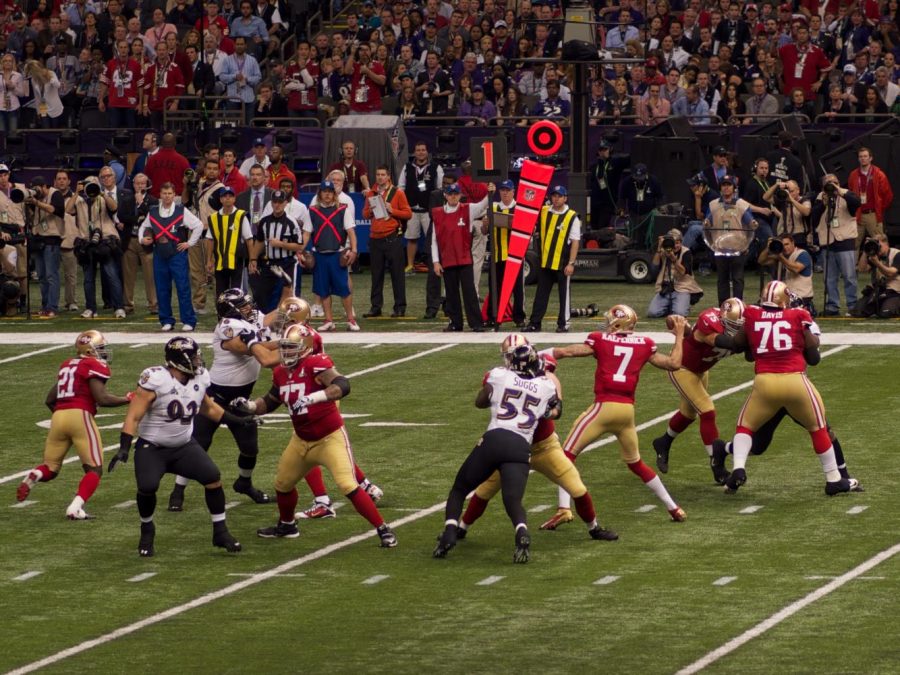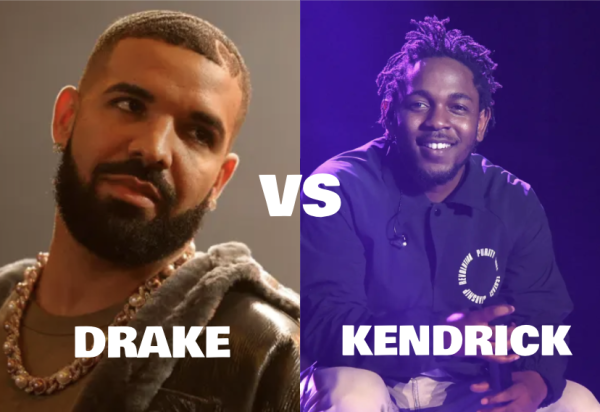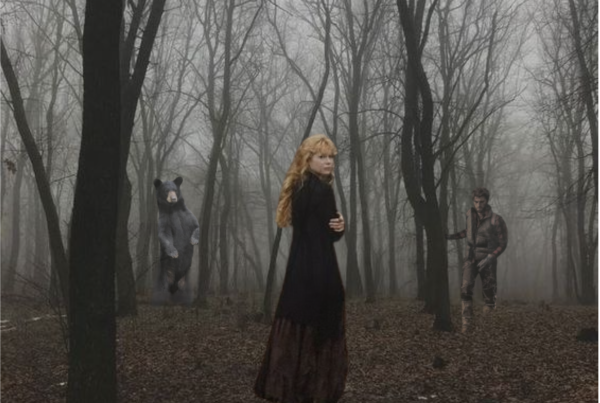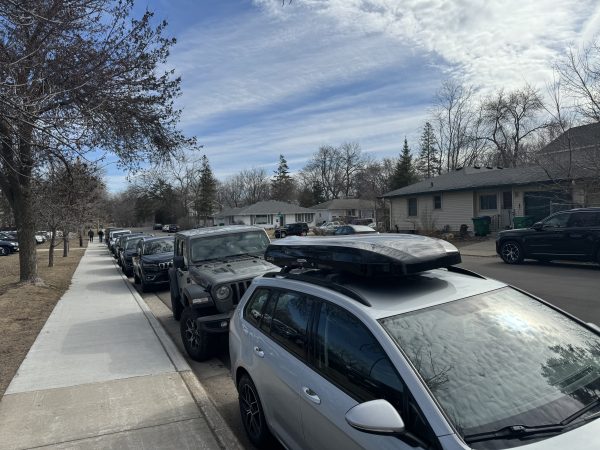Colin Kaepernick has the right to protest
Kang gives his take on the NFL controversy that has been in the spotlight the past two years—kneeling for the anthem.
Austin Kirk, Via Flickr, Creative Commons
Colin Kaeperick (QB #7) plays in the Super Bowl XLVII
For the first time, on August 14, 2016, 49ers quarterback Colin Kaepernick sat as the Star Spangled Banner played at the Levi’s Stadium. On September 1, San Francisco safety Eric Reid kneeled aside Kaepernick. On September 9, Broncos linebacker Brandon Marshall kneeled, and every week of the season, many more joined. In the midst of public controversy, Kaepernick justified that the actions were to strictly condemn “[the oppression] of Black people and people of color.” This year, players have linked arms and kneeled to object the unresolved issue of racism. Beyond the NFL, athletes in WNBA, MLB, and even high school players have protested in the same way. The public has polarized into two clear sides: the critics and the supporters. To me, this issue is simple: these athletes are exercising their constitutional right and their deserved platform to advocate for an underrepresented issue.
They should shut up and just play football. Today, we have normalized the recurring violence between the African American community and the police. No longer are we shocked by the breaking headlines, which are overshadowed by other news. In D.C., ten percent of the House of Representatives are African American and only three percent of the Senate, according to the Washington Post. In the NFL, however, the fact that 68 percent of players are black provides the necessary grounds to convey their message through America’s most beloved sport.
When Colin Kaepernick took a knee, he didn’t protest soldiers nor did he protest his status as a U.S. citizen. He believed the conditions today didn’t reflect what the flag should stand for: freedom and equality.
— Alex Kang
They are all millionaires. But, they are also people of this country. On Fox and Friends, former Speaker Newt Gingrich said, “If you’re a multi-millionaire who feels oppressed, you need a therapist, not a publicity stunt.” Many of the athletes are undeniably wealthy and are less likely to face the hardships they are protesting. But that does not disqualify them from standing up for the powerless. Given the unemployment of Colin Kaepernick today, they might be better off just biting the bullet, standing for the anthem; teams will sign them and no one will burn their jerseys. But as a part of the African American community, they empathize with their community; they see people getting shot on the streets they grew up in, or they hear their neighbor has been shot. Regardless of their lifestyle or paycheck, they are determined to work for the powerless. To see the ultimate goal of equality, they kneel today.
They are disrespecting the soldiers. But, it was never the intention of the players to disrespect the soldiers. The flag represents the people; whether you’re a brave soldier defending this country or whether you’re just a normal person living in the United States, the flag symbolizes all individuals on this land. When Colin Kaepernick took a knee, he didn’t protest soldiers nor did he protest his status as a U.S. citizen. He believed the conditions today didn’t reflect what the flag should stand for: freedom and equality. In no way, have the players intended to depreciate soldiers; some of their family members did or currently are serving in the military, and they do realize that the reason why they can protest is because soldiers are defending America. A former Green Beret Michael Sand said, “It is precisely for men like [Colin Kaepernick], and his right to peacefully protest injustice, that we were willing to serve.”
Thomas Jefferson once said, “I tremble for my country when I reflect that God is just; that his justice cannot sleep forever.” We, as people, have progress to make; there are too many innocent lives being taken away, and there are too many people living under fear and oppression. Instead of focusing on how the athletes are protesting, it is vital to recognize the reasons why they are protesting. For the soldiers, for the people, for the flag, progress must be made.

















































